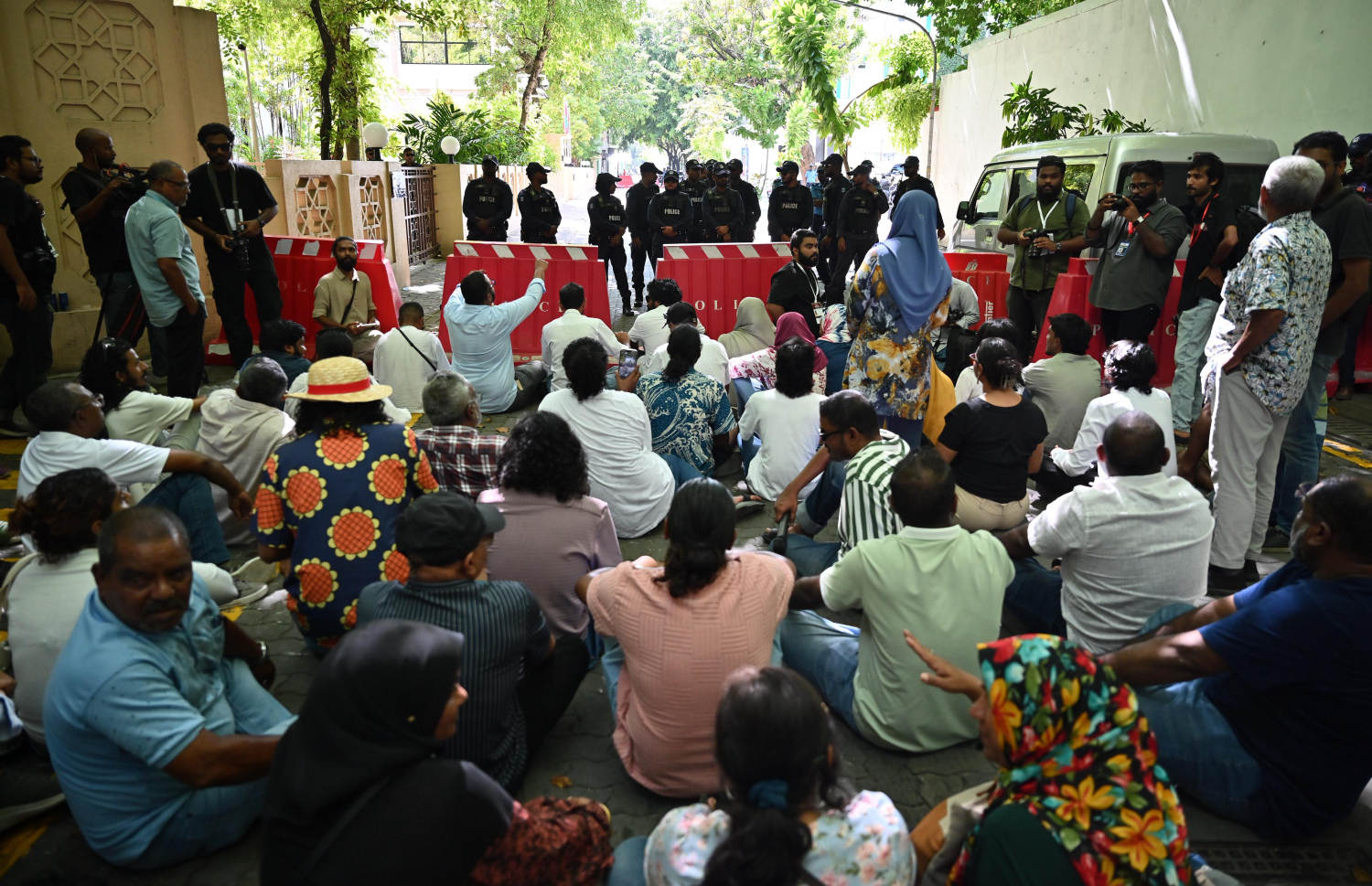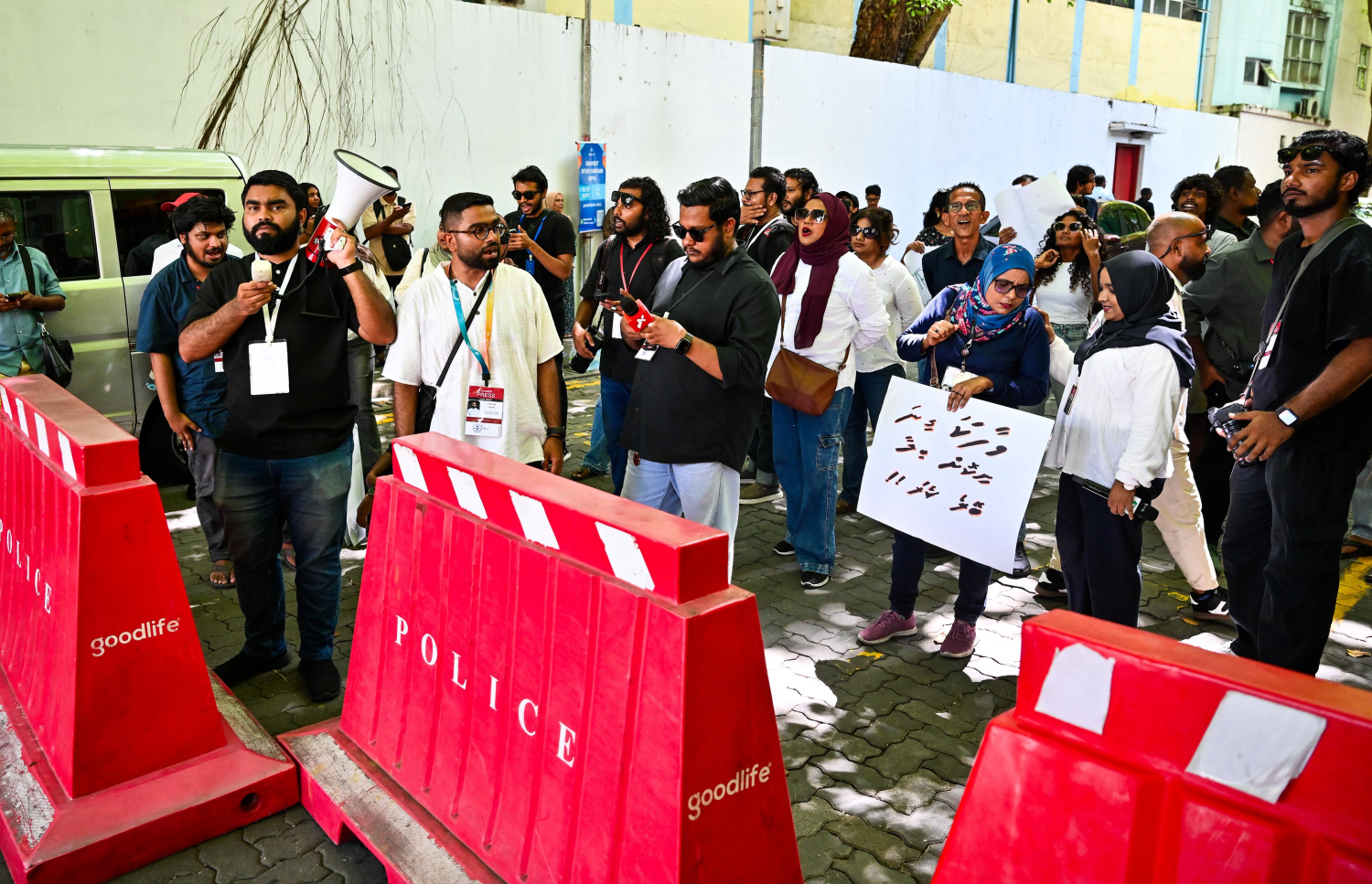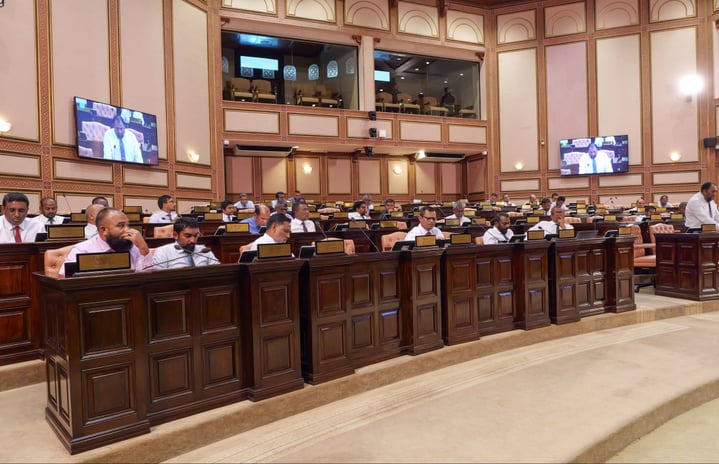Parliament has passed the amended Media Regulatory Bill in an extraordinary session, despite ongoing protests by journalists. The bill, which originally included a controversial provision to fine individual journalists between MVR 5,000 and MVR 25,000, was passed with 60 votes in favor and just one vote against.
Following its initial passage, the bill was reviewed by the Independent Institutions Committee, which made a number of amendments based on recommendations from the Attorney General’s Office, particularly on clauses that raised concerns among media professionals.
One of the most significant amendments was the removal of the provision that allowed individual journalists to be fined large amounts. Instead, the revised bill requires that journalists who violate the code of conduct publicly issue corrections or retractions.
If false or misleading information is published, the person responsible must publicly correct it or apologize as soon as they are notified. The Media Commission established under the bill has the authority to enforce this, and can take further action if the corrections or apologies are not made.

For newspapers and magazines that breach the code of conduct, the bill now provides for fines ranging between MVR 5,000 and MVR 100,000, depending on the severity and frequency of the violations.
Additionally, if content is deemed a threat to Islam, national security, public order, or public health, the state has the authority to block the source through relevant agencies. In such cases, the Commission can also apply to the courts for the suspension or revocation of a publication's license, which the court must rule on within 30 days.

Another highly debated element of the bill was the President’s power to appoint the head of the Media Commission. That provision has now been scrapped. Instead, the seven-member commission will include three members appointed by Parliament and four elected by media organizations.
While Parliament retains the authority to formally appoint the Commission’s chairperson, the selection process must now follow transparent parliamentary procedures, with appointments to be made within 15 days of the bill taking effect.
Notably, editors and those currently managing media outlets are barred from running for Commission membership, for the purpose of ensuring a degree of independence in its composition.
- Broadcasters violating the Act and its Code of Conduct may face fines between MVR 50,000 and MVR 250,000.
- All cases heard by the Commission must be resolved within 30 days, except under special circumstances.
- Journalists and media outlets are entitled to adequate time to respond and may have legal representation during proceedings.
- If a rule is allegedly broken, an interim committee, composed of professionals who meet Commission criteria, will conduct an initial investigation. Serious matters may be escalated to the full Commission.
- A journalist register will be maintained, and press passes issued accordingly.
- Rules governing newspapers also apply to electronic media
Despite the amendments, journalists remain critical of the bill. Demonstrations continued outside Parliament as the vote took place, with police erecting barricades to contain protesters.
A total of 22 organizations, including the international watchdog Reporters Without Borders, have urged for the bill to be withdrawn. More than 150 journalists have signed a petition opposing it, citing threats to press freedom and concerns over increased state control of the media.
A total of 22 organizations, including the international watchdog Reporters Without Borders, have urged for the bill to be withdrawn. More than 150 journalists have signed a petition opposing it, citing threats to press freedom and concerns over increased state control of the media.
A total of 22 organizations, including the international watchdog Reporters Without Borders, have urged for the bill to be withdrawn. More than 150 journalists have signed a petition opposing it, citing threats to press freedom and concerns over increased state control of the media.




